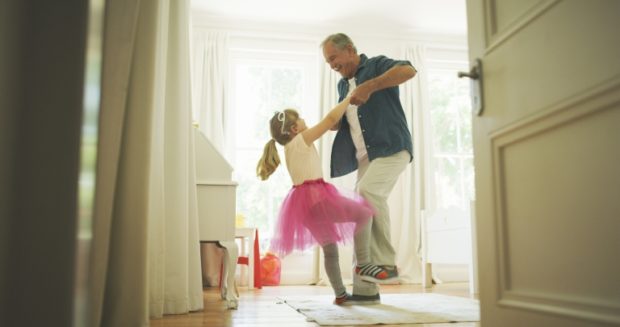
Image: Cecilie_Arcurs/Istock.com via AFP Relaxnews
An Israeli research study suggests that dance therapy can improve quality of life and deepen family ties between grandparents and grandchildren. Dancing with grandma may well be another activity to add to the list of things to do when the COVID-19 epidemic is behind us.
Numerous studies have shown that regular physical activity helps to improve the physical and mental health of the elderly. But as they advance in age, it’s not always easy for older people to jog regularly or work out at home. Ushering in a fresh alternative, Israeli researchers from the University of Haifa and Kibbutzim College have tested the benefits of dance movement therapy (DMT) on senior citizens.
Developed in the 1960s by the American Dance Therapy Association, DMT makes use of dance movements in order to boost cognitive, emotional and motor functions.
In a new study, researchers set out to assess the potential benefits of DMT on seniors and their grandchildren. The experiment, detailed in the journal Frontiers in Psychology, involved the participation of 16 DMT specialists (all of whom were women) who took part in three free-dance sessions with their grandmothers lasting between 10 and 15 minutes.
Each of the three dance sessions, which were spread over three weeks, took place at the grandmother’s home. Qualitative interviews were conducted with the grandmothers and granddaughters, and participants also filled out a kind of “diary” in which they recorded their emotions.
Analyzing all these elements, the study’s lead author Dr. Einat Shuper Engelhard found that among the grandmothers, dance promoted positive feelings and improved mood. As for the granddaughters, dance changed their perspective on aging and helped them cope with the eventual death of their grandparents. Both groups expressed gratitude and felt that their connection was stronger after the sessions.
According to Shuper Engelhard, the close ties between the participants played a key role in the success of the experiment. The sessions “promoted physical activity even when the body was fatigued and weak, this emphasizes the significance of the close and familiar relationship as a means to promote new experiences (which can occasionally seem impossible) for the older person,” points out Shuper Engelhard, who is now hoping to extend the study to a larger number of participants. JB
RELATED STORIES:
Children prefer books which explain how the world works, says new study
Screen time is not affecting kids’ social skills, says evidence from new study